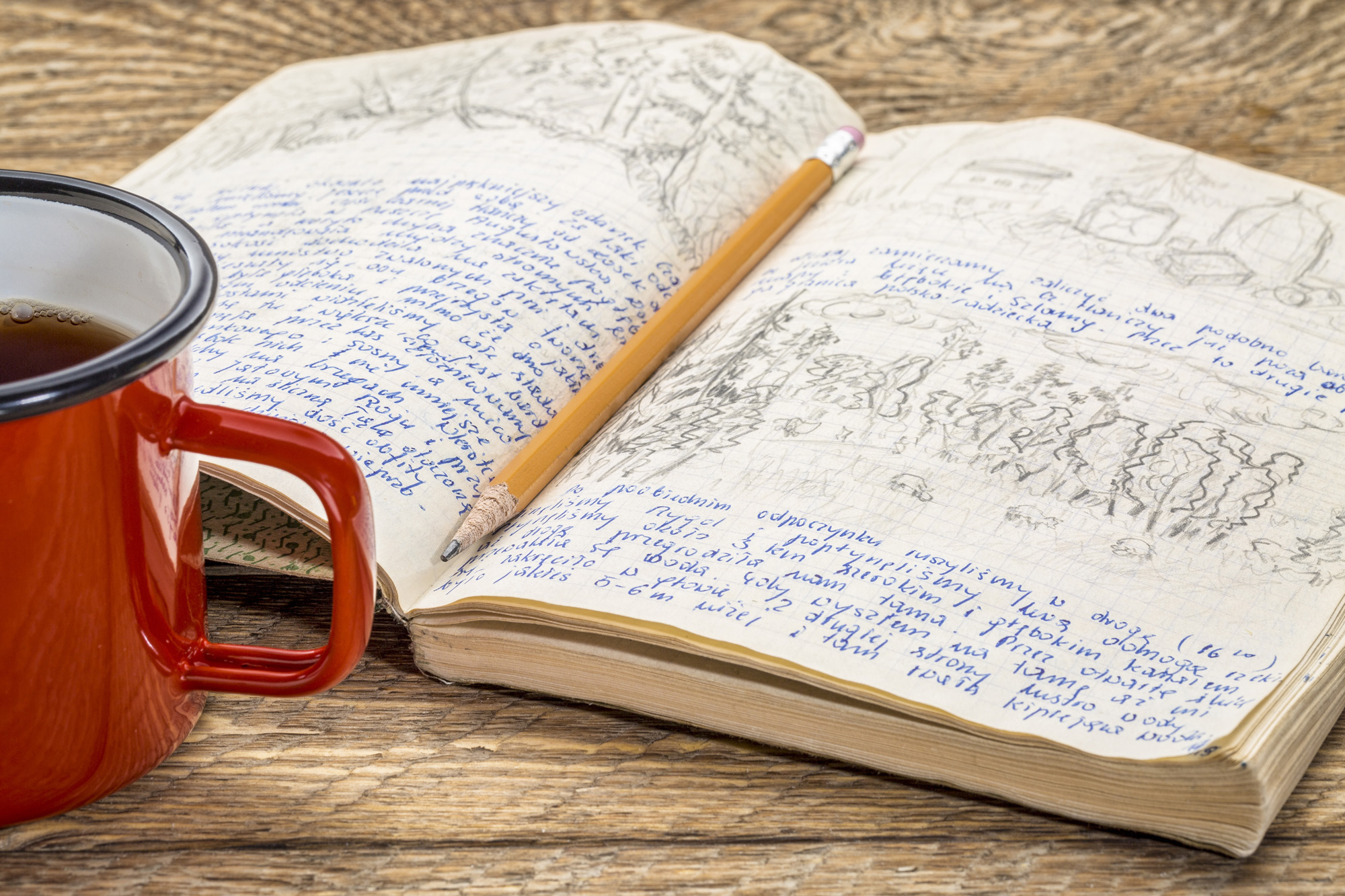Writing is a powerful and surprisingly accessible tool to bring insight, growth and change to light. It’s been said that you write in order to learn how to think. Journaling grants us the time needed to think and straighten out our most tangled thoughts.
I’ve been journaling for the last 30 years. My methods have evolved, but one thing is consistent: I keep writing – and that’s all that matters.
Below are resources to help you jump-start your journaling practice.
The Artist’s Way by Julia Cameron: https://juliacameronlive.com/
Twenty-five years ago, a friend gave me this book. It’s not exactly a self-help manual; Cameron’s advice is simple, and she makes no over-the-top claims. The foundation is a routine called morning pages, based on the belief that writing out (in longhand) three pages of free-form writing, at the beginning of the day, will unclog one’s mental and emotional channels of the muck that keeps us from being happy, productive, and creative.
Most mornings I don’t produce three pages, but the stream of consciousness ritual is helpful. I can work out a problem, or let something go.
Bullet Journal®: https://bulletjournal.com/
Bullet Journal® is a methodology best defined as a mindfulness practice disguised to improve productivity. The system helps you organize your what while you remain mindful of your why. Once you get a hang of the practice, it’s an excellent tool. To fully take advantage of the format, you should buy a notebook designed for bullet journaling. Most of the pages consist of graph paper, and you create a detailed table of contents along the way. I kept a bullet journal for one year, and I often go back to it as a reference tool.
Silk + Sonder: https://www.silkandsonder.com/
“Sonder” is a recently coined word capturing the realization that each random passerby is living a life as vivid and complex as your own. Each month through a subscription service, I receive a themed Silk + Sonder notebook. I used it as a supplement to my longhand journal. This spiral-bound monthly resource is many things: planner, habit tracker, mood tracker, gratitude list, and prompted journal. It also contains lifestyle content.
Gratitude
Writing down three things for which you are grateful is powerful. Research shows this daily practice reduces stress and evokes calm, especially at night. Keeping track of the good things that happen in life can prepare and strengthen you to deal with the rough patches.
Below are two resources for longhand gratitude journals:
This link from Therapistaid provides a gratitude journal template: https://www.therapistaid.com/worksheets/gratitude-journal.pdf
This four-part template gives the writer prompts: https://i.pinimg.com/736x/71/ac/24/71ac24206eabb101cf91028c253d0ce0.jpg
If you are more tech motivated, you may want to record what you are grateful for via an app. Below are a few suggestions:
Gratitude: https://play.google.com/store/apps/details?id=com.bliss.phonegap&hl=en
Gratitude Journal: https://apps.apple.com/us/app/gratitude-journal-life-changing/id402667476?ign-mpt=uo%3D8
Grateful: An app for counting blessings: http://treebetty.com/apps/app-detail/grateful#.XpM9T25Fxn5
Your journal is for your eyes only, so you can write anything without worrying about judgment from others. There are no rules. Take time to figure out what works best for you – and keep writing.
In 2018, Elizabeth Tuico founded Rebel Road Creative (www.rebelroadcreative.com) as a portfolio consultancy specializing in marketing strategy and corporate wellness. Based in the District of Columbia, Elizabeth has 25 years of marketing experience. In 2011, she began teaching yoga, Pilates and meditation classes, and continues to study with many renowned yoga masters. In addition to marketing consulting, Elizabeth facilitates wellness workshops. She earned a bachelor’s degree in art history from Boston College and a master’s degree in history from The Johns Hopkins University.
